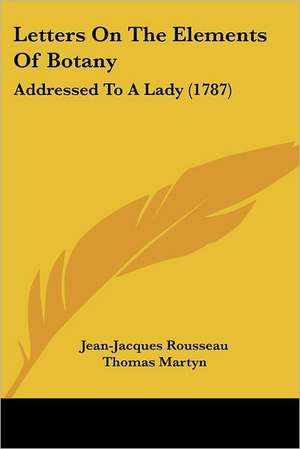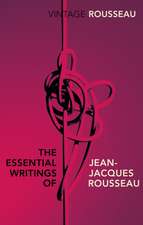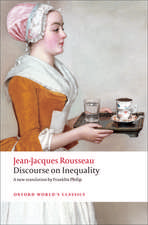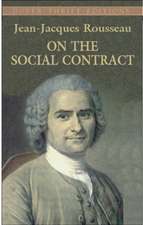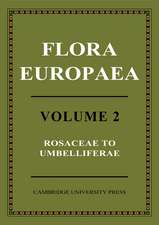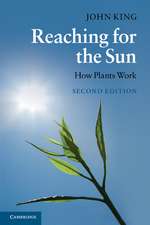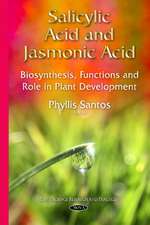Letters On The Elements Of Botany
Autor Jean-Jacques Rousseauen Limba Engleză Paperback – 30 sep 2008
| Toate formatele și edițiile | Preț | Express |
|---|---|---|
| Paperback (2) | 284.09 lei 39-44 zile | +32.27 lei 6-12 zile |
| Cambridge University Press – 26 iul 2017 | 324.89 lei 3-5 săpt. | +32.27 lei 6-12 zile |
| Kessinger Publishing – 30 sep 2008 | 284.09 lei 39-44 zile |
Preț: 284.09 lei
Nou
Puncte Express: 426
Preț estimativ în valută:
54.37€ • 57.36$ • 45.31£
54.37€ • 57.36$ • 45.31£
Carte tipărită la comandă
Livrare economică 30 decembrie 24 - 04 ianuarie 25
Preluare comenzi: 021 569.72.76
Specificații
ISBN-13: 9781437153255
ISBN-10: 1437153259
Pagini: 556
Dimensiuni: 152 x 229 x 30 mm
Greutate: 0.8 kg
Editura: Kessinger Publishing
ISBN-10: 1437153259
Pagini: 556
Dimensiuni: 152 x 229 x 30 mm
Greutate: 0.8 kg
Editura: Kessinger Publishing
Notă biografică
Jean-Jacques Rousseau (28 June 1712 - 2 July 1778) was a Genevan philosopher, writer and composer. His political philosophy influenced the progress of the Enlightenment throughout Europe, as well as aspects of the French Revolution and the development of modern political, economic and educational thought. His Discourse on Inequality and The Social Contract are cornerstones in modern political and social thought. Rousseau's sentimental novel Julie, or the New Heloise (1761) was important to the development of preromanticism and romanticism in fiction. His Emile, or On Education (1762) is an educational treatise on the place of the individual in society. Rousseau's autobiographical writings-the posthumously published Confessions (composed in 1769), which initiated the modern autobiography, and the unfinished Reveries of a Solitary Walker (composed 1776-1778)-exemplified the late-18th-century Age of Sensibility, and featured an increased focus on subjectivity and introspection that later characterized modern writing. Rousseau befriended fellow philosophy writer Denis Diderot in 1742, and would later write about Diderot's romantic troubles in his Confessions. During the period of the French Revolution, Rousseau was the most popular of the philosophers among members of the Jacobin Club. He was interred as a national hero in the Panthéon in Paris, in 1794, 16 years after his death.
Cuprins
Translator's preface; Introduction; 1. The true use of botany; 2. Double flowers to be avoided; 3. Botany not to be studied by books; 4. Reason why two stamens are shorter than the other four in cruciform flowers; 5. Glands very small; 6. The umbellate and other natural tribes of plants; 7. Botany a study of curiosity only; 8. The manner how to form a hortus siccus; 9. The skill of a botanist; 10. Genera and species; 11. Explanation of generic and specific characters of plants; 12. The examination of plants; 13. Corn and grasses; 14. Other plants of the third class; 15. The fourth class; 16. The fifth class; 17. Nectary; 18. Hexandria monogynia; 19. Heptandria; 20. The eleventh class; 21. Class Icosandria; 22. Fourteenth class, Didynamia; 23. Fifteenth class, Tetradynamia; 24. Plants to be examined at different seasons; 25. Class seventeenth, Diadelphia; 26. Class Syngenesia; 27. The twentieth class; 28. The twenty-first class; 29. The twenty-second class; 30. The twenty-third class; 31. The different forms and structure of the nectary; 32. The twenty-fourth class; Index of the English names of plants; Index of Latin names; Natural tribes, or orders of plants; Index of terms.
Descriere
Descriere de la o altă ediție sau format:
A 1785 translation and continuation of Rousseau's work on botany, in a series of letters 'addressed to a lady'.
A 1785 translation and continuation of Rousseau's work on botany, in a series of letters 'addressed to a lady'.
